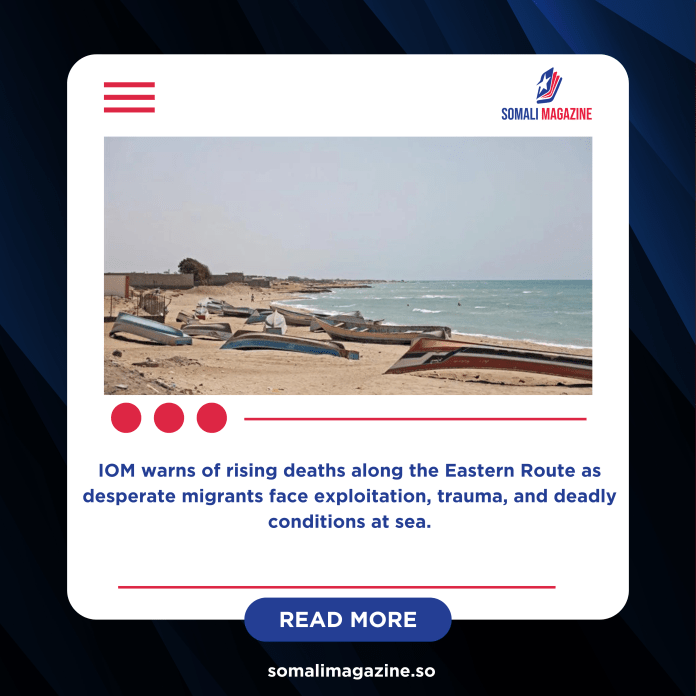Facebook Twitter (X) Instagram Somali Magazine - People's Magazine
Seven Ethiopian migrants have died from hunger and thirst while trying to reach Yemen by boat from Somalia, according to the International Organization for Migration (IOM).
In a statement released on Wednesday, the IOM reported that a boat carrying 250 Ethiopian migrants, including 82 children, broke down during the journey across the Gulf of Aden. The migrants were at sea for seven days without food or clean water.
The vessel had departed from Bossaso, a port city in northern Somalia, and was heading to the Arqah area in southern Yemen when it encountered problems. By the time the boat arrived on Tuesday, seven people had already died from severe dehydration and starvation.
The survivors were met by IOM teams in Yemen, who provided emergency support, including food, medical care, and psychological assistance.
“These people have experienced a week of hell at sea,” said Abdusattor Esoev, IOM’s Chief of Mission in Yemen. “They have been exploited, terrified, and traumatized.”
This tragic incident is part of a growing number of deaths along what is known as the Eastern Route—a dangerous migration path used by people from the Horn of Africa, especially Ethiopia and Somalia, who are trying to reach Gulf countries for better opportunities.
So far in 2025, the IOM has recorded over 350 migrant deaths and disappearances on this route. However, the agency believes the actual number could be much higher, as many cases go unreported.
Many migrants travel under the control of smugglers who overcrowd boats, fail to provide basic necessities like food and water, and abandon people in unsafe conditions. In most cases, those making the journey are escaping poverty, conflict, or lack of job opportunities in their home countries. They often do not realize how dangerous the journey can be until it is too late.
The IOM warned that without stronger protection for migrants and more legal pathways to travel, such tragedies are likely to continue. It called on governments and humanitarian partners to increase efforts to support migrants and address the root causes of irregular migration.
“These journeys will only become more dangerous unless action is taken,” the agency said.
Yemen, despite being affected by years of internal conflict, remains a major transit country for migrants trying to cross into Saudi Arabia and other Gulf nations. Each year, thousands of people from East Africa attempt the risky voyage across the sea in search of work and stability.
IOM teams in Yemen work on the ground to provide lifesaving aid to migrants who survive the crossing. This includes emergency health services, temporary shelter, food, and psychological support. They also assist those who wish to return home voluntarily.
The organization continues to raise awareness about the extreme risks involved in such journeys and urges potential migrants to seek safer, legal alternatives.
The deaths of these seven migrants highlight the ongoing crisis facing people from the Horn of Africa and the urgent need for international cooperation to prevent further loss of life.

